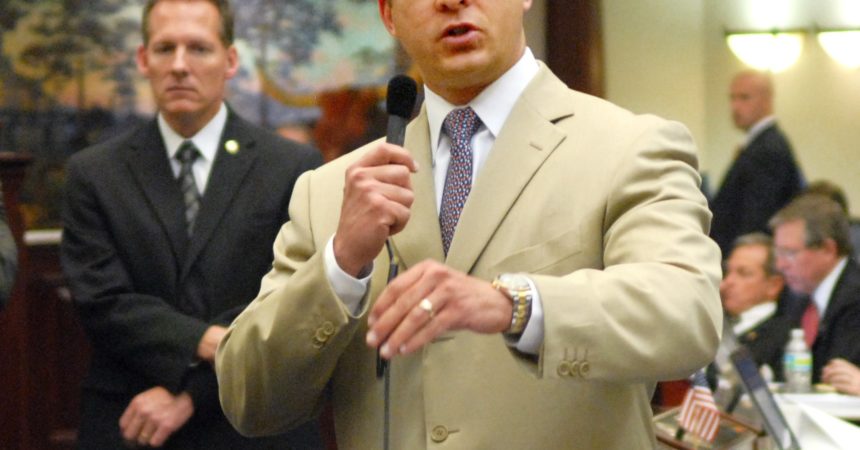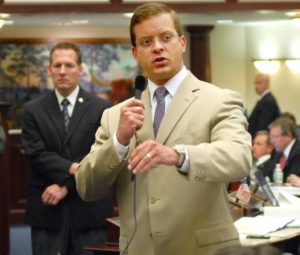
Citizens backs study on property insurance market
Citizens Property Insurance Corp. will pay for a Florida State University study to determine how increasing rates in the private market can be slowed, as policies are expected to shift to the state-backed insurer of last resort in the coming year.
The Citizens Board of Governors last Wednesday agreed to spend $265,695 for an “exposure reduction study” that is expected to be completed in December, ahead of the 2021 legislative session.
Board member Carlos Lopez-Cantera, a former state lieutenant governor, cast the lone vote against the study, recommending a delay, in part, to get a better understanding of how the COVID-19 outbreak will affect the real-estate, bond and insurance markets.
“I think it’s better to wait, until at least another three months, to see how everything settles before spending a quarter-million dollars on a study that could be moot, pointless once it’s done,” Lopez-Cantera said.

Former lieutenant governor Carlos Lopez-Cantera said he would like to see a delay of a study that Citizens Property Insurance Corp. will pay Florida State University to do. Photo special to the Outlook
Board Chairman Bo Rivard, in supporting the contract, said he expects the analysts conducting the eight-month study to consider ongoing changes to the market.
The money will go to the university’s Florida Catastrophic Storm Risk Management Center, which is expected to investigate ways Citizens can further reduce its exposure and steps the Legislature could take to slow movement of policies from private insurers to Citizens.
“It would go well beyond looking at Citizens as a stand-alone entity and what changes could occur within Citizens and what the issues are within Citizens,” said Citizens President and CEO Barry Gilway. “It would also extend to the overall marketplace and determine if changes are needed for the overall market that could improve the competitive nature of the market.”
Gilway said the state-backed insurer is already seeing an increase in policy applications from the typical number of about 7,000 a month. The increase comes as more than half of the private companies that sought rate increases in the second half of 2019 filed for double-digit hikes.
As an example, the state Office of Insurance Regulation recently approved a 23 percent increase in homeowners’ multi-peril rates for National Specialty Insurance Co. That increase took effect last week for new policies and will apply to renewal policies starting May 14, according to Karen Kees, an office spokeswoman. Similarly, regulators in January approved a 21.9 percent rate hike by Edison Insurance Co.
Also, Demotech, a primary Florida insurance rating agency, recently advised 13 companies operating in Florida, representing up to 2 million policyholders, that they faced the prospect of a downgrade, which would make them ineligible to write or renew policies. Gilway said officials have since received an update from Demotech that most of those companies should receive favorable ratings by April 1.
Still, the number of policies that could face an uncertain future could approach 917,000 under a Citizens analysis, Gilway said. That could mean between 75,000 to 100,000 policies shifting into Citizens, which as of Jan. 31 had 443,228 policies.
The state-backed insurer has spent years trying to shed policies and move them into the private market.
Gilway said Citizens had been highly optimistic that changes made during the 2019 legislative session, such as curbing the practice known as assignment of benefits, had been taking hold. Insurers had long argued that abuses of assignment of benefits were driving up rates, primarily because of litigation over residential water-damage claims.
He indicated the so-called AOB changes are helping as the industry faces other pressures.
“From my perspective, it was even more timely than it would have been previously,” Gilway said. “We were looking at incremental gains in the reduction of Citizens. Now we’re faced, in my opinion, with a much more significant potential impact.”
Gilway said the study expands upon an idea that was pushed by Sen. Jeff Brandes, R-St. Petersburg, during this year’s legislative session.
“The intent here is to get more support and more evidence for the items that we believe could make s serious impact,” Gilway said.
A study was not included in a bill, but Brandes repeatedly warned that rising rates and cutbacks in coverage could require lawmakers to address issues in the insurance industry, including problems in the property-insurance industry, in a special session.







